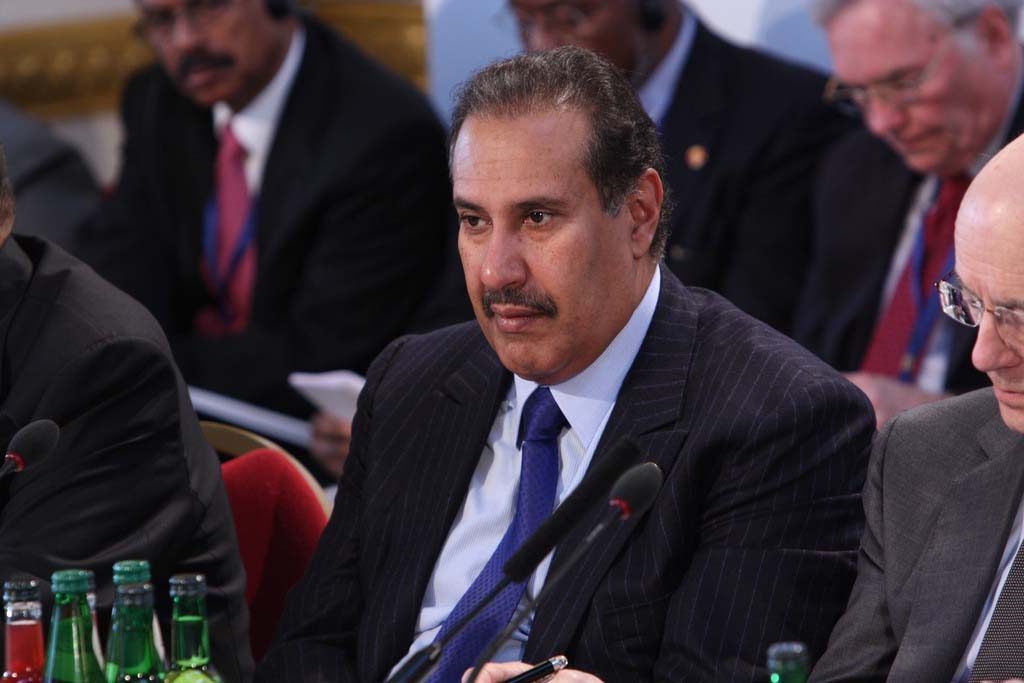
In a new interview, Qatar’s outspoken former prime minister has denied any wrongdoing in the country’s bid for the 2022 World Cup and asked why Russia – which will host the football tournament four years earlier – is not being placed under the same scrutiny.
Sheikh Hamad bin Jassim Al Thani, who left his post as PM approximately two years ago, told Fox News this week that residents in the region believe the criticism is fueled in part by racism.
“If you see how (critics) talk about Russia and how they talk about Qatar … it is all about Qatar. Is it because (Qatar is) an Arab Islamic small country?” he said yesterday on the Fox program Sunday Morning Futures.
He added that he supports Russia’s right to host the 2018 World Cup.
While some have questioned whether it’s appropriate to hold the World Cup in Russia in light of its invasion of Ukraine, such discussions have been overwhelmingly overshadowed by reports of migrant worker abuse and bribery allegations in Qatar.
New investigation
Last week, the Office of the Attorney General of Switzerland announced it was launching criminal proceedings as part of an investigation into “irregularities” into the awarded of the allocation of the 2018 and 2022 World Cups to Russia and Qatar.
The investigation is looking into allegations of “criminal mismanagement and of money laundering” related to the selection process for the football tournaments.

The announcement came the same day that Swiss police, acting on behalf of US authorities, arrested several FIFA executives.
Officials say that more than $150 million in bribes and kickbacks were paid or agreed to by US and South American sports executives for media and marketing rights to international football tournaments since the 1990s.
The Swiss police statement said the two investigations were separate and the US Department of Justice did not mention the 2018 or 2022 World Cup in a lengthy statement that explained the indictment.
The dramatic move came two days before Sepp Blatter was re-elected as FIFA president for a fifth term and fueled perceptions that Qatar bribed members of FIFA’s executive committee to help secure support for its bid.

In response, Qatar’s Supreme Committee for Delivery and Legacy – which is overseeing the country’s construction of World Cup stadiums and training facilities – said in a statement last week that there was nothing untoward about its winning submission:
“We conducted our bid with integrity and to the highest ethical standards,” the SCDL said in a statement.
Al Thani echoed that position yesterday and hinted that international media and some of the losing bidders were responsible for “flaring” the issue.
“We dealt with this in a fair competition. There was no corruption … (It) shows the ugly face of the other party when they did not win a fair competition.”
Past involvement
Al Thani – widely known by his initials, HBJ – held several senior government posts under former Emir Sheikh Hamad bin Khalifa Al Thani including prime minister, foreign minister and chairman of the Qatar Investment Authority, where he oversaw the country’s sovereign wealth fund.
He was sidelined when Sheikh Hamad abdicated his position as Emir to his son Sheikh Tamim in 2013, and largely disappeared from public view for a year.
HBJ re-emerged in mid-2014, conducting an hour-long television interview with US journalist Charlie Rose and making several multibillion-dollar financial investments.
He was also photographed alongside Sheikh Tamim bin Hamad Al Thani last October at the funeral of Christophe de Margerie, the CEO of French oil firm Total.
Look who's apparently back in the inner circle! Qatar Emir in #Paris for Total CEO funeral http://t.co/NNtizrRwqM #HBJ via @LesleyWalker17
— Shabina Khatri (@shabinakhatri) October 28, 2014
However, Al Thani downplayed his current connection to the Qatar government during his Fox interview by underscoring that he was speaking as an individual, and not on behalf of the country.

Much of this week’s discussion focused on regional security issues such as the influence of ISIS, which Al Thani attributed to a failure of the US and other military powers to oust Syrian President Bashar al-Assad as advocated by Qatar, Saudi Arabia and other states in the region.
He added that ISIS has been strengthened by the perceived exclusion of Sunnis from Iraq’s government in recent years.
More broadly, HBJ said the region’s instability has been fueled by decades of “bad policy” and suggested some rulers in the Middle East are primarily concerned with holding onto their own positions rather than improving the lives of their citizens:
“We have dictatorships which have stayed 40 years, most think about themselves how to stay in power. They do not talk about jobs and development.”
Thoughts?







